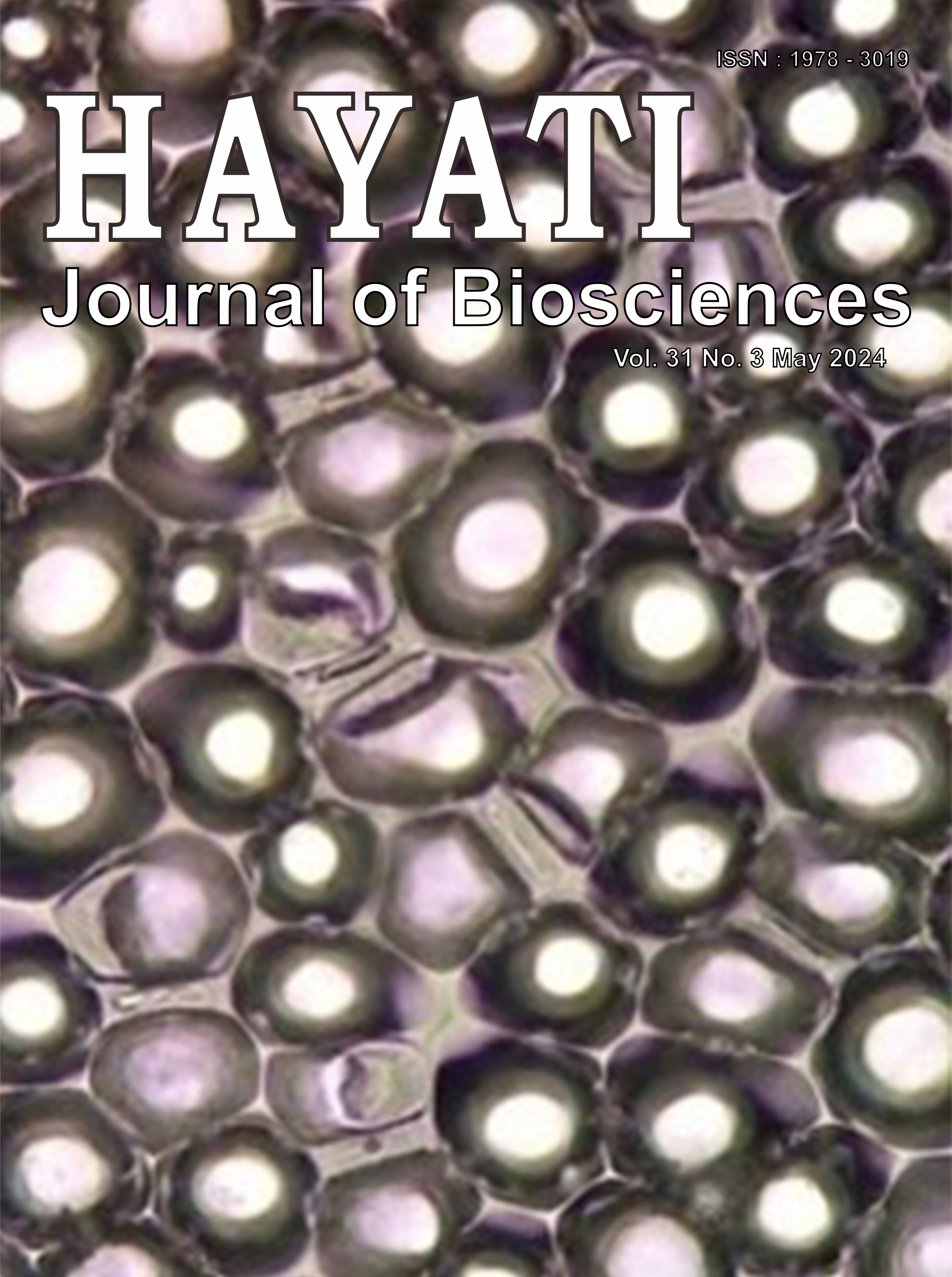Mangroves in Alas Purwo National Park, Indonesia: Diversity and Its Potential Carbon Services
Abstract
Mangroves are important ecosystems that help prevent global warming by storing carbon. A study in Alas Purwo National Park aimed to identify the species diversity and estimate the market value of total carbon from each mangrove species. The study used field sampling and diversity indexes. The study found that the study area has high diversity, with Shannon-Weiner, Margalef, and Pielou's Indexes of H' = 2.276, J = 0.949, and R = 1.453, respectively. Rhizophora apiculata was the dominant species with Above-Ground Carbon (AGC) and Below-Ground Carbon (BGC) stocks of about 34.73 Mg C Ha-1 and an economic value of $1,605, the highest among other species. The results of this study can help improve our understanding of the role of mangrove characteristics for both ecology and the economy.
Downloads
Copyright (c) 2024 Seftiawan Samsu Rijal, M. Tanzil Furqon, Muammar Kadhafi, Febriyani Eka Supriatin, Riqki Yoga Aprillianto

This work is licensed under a Creative Commons Attribution-NonCommercial 4.0 International License.
HAYATI J Biosci is an open access journal and the article's license is CC-BY-NC. This license lets others distribute, remix, tweak, and build upon author's work, as long as they credit the original creation. Authors retain copyright and grant the journal/publisher non exclusive publishing rights with the work simultaneously licensed under a https://creativecommons.org/

























.png) IPB University
IPB University Department of Biology
Department of Biology The Indonesian Biological Society
The Indonesian Biological Society 

